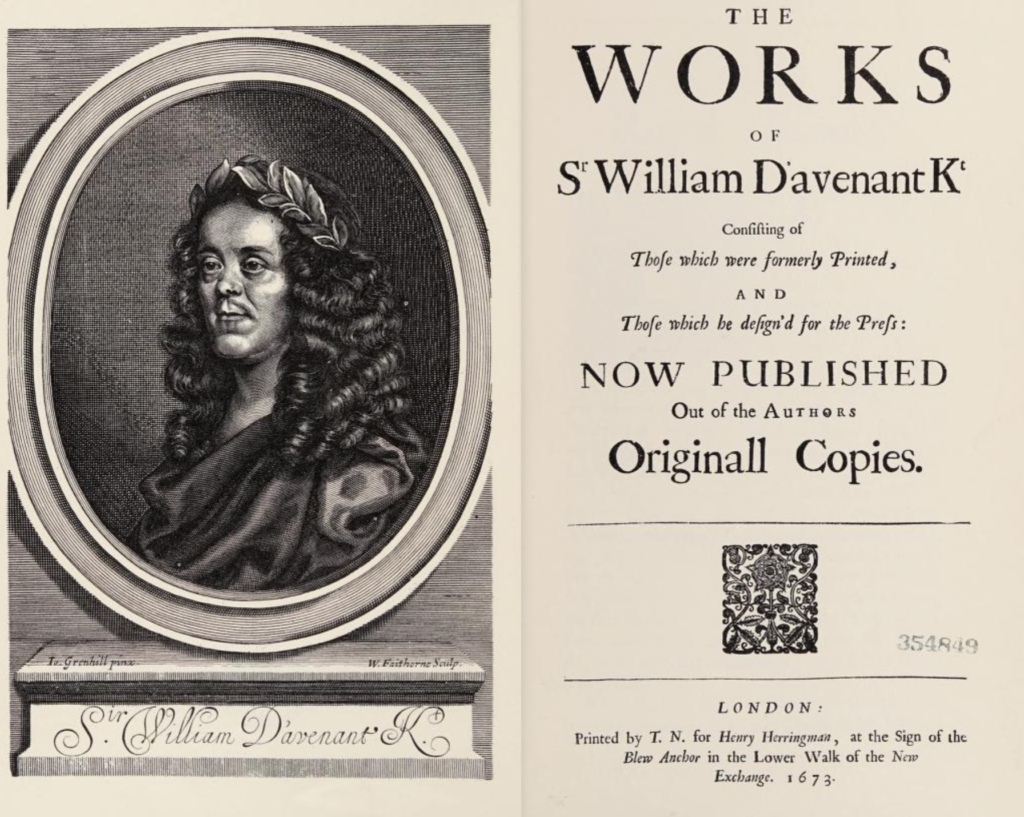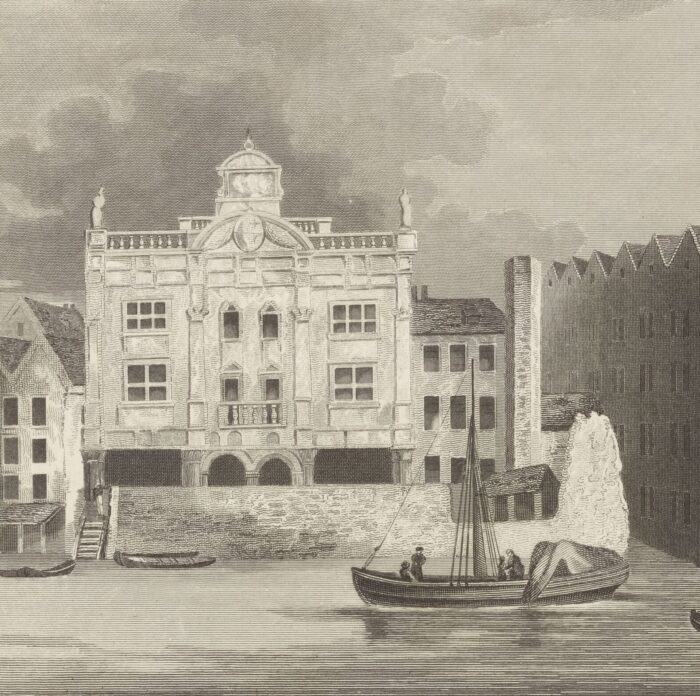St Bride
Read the stories of four that either survived or succumbed to the flames, and how they reemerged from the ruins.

St Bride
William Davenant was a poet, playwright, and theatre manager who claimed to be William Shakespeare’s godson and illegitimate son. There is a general acceptance of the former but not the latter.
William Davenant is buried in Poets’ Corner in Westminster Abbey. According to the Calendar of State Papers he also held the office of Poet Laureate and on his death was succeeded by John Dryden.

William rented Salisbury Court Theatre for The Dukes Men until his new theatre could be erected in Lincoln’s Inn Fields.
In 1660 with the restoration of the monarchy, Salisbury Court Theatre was repaired and Charles II granted permission to two companies of actors to perform legitimate drama which was loyal to the crown and issued letters of patent to two royalist supporters to lead them.
One company was called The King’s Men and was headed by Thomas Killigrew. The other was the Duke’s Men after Charles II brother James, Duke of York (later James II) and was headed by William Davenant. These two theatre companies had a virtual monopoly for presenting drama in London till the nineteenth century.
In June 1661 William moved his theatre and actors to his new theatre in Lincoln Inn Fields. But the Duke’s Men did not stay there long as the theatre proved to be too small. In addition, theatres closed again in 1665 this time because of plague.

'The Duke's theatre in Dorset Gardens', The New York Public Library Digital Collections.
In 1666 The Great Fire of London destroyed the original Salisbury Court Theatre and in 1668 William Davenant died leaving his third wife, Lady Davenant, with financial control of the theatre until their oldest surviving son Charles, then 12 years old, could take over the business.
A new plot adjacent to Salisbury Court was initially considered before settling on a more southerly part of Dorset gardens fronting the Thames with a wharf next to Dorset Stairs so that people could arrive by boat.
Read the stories of four that either survived or succumbed to the flames, and how they reemerged from the ruins.
Keep up to date with the latest news ...